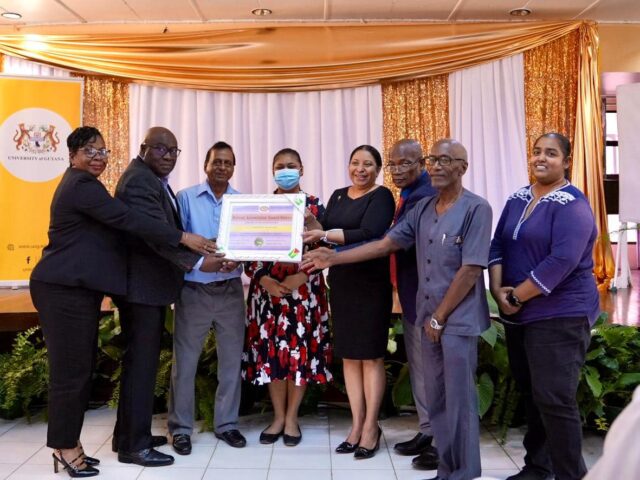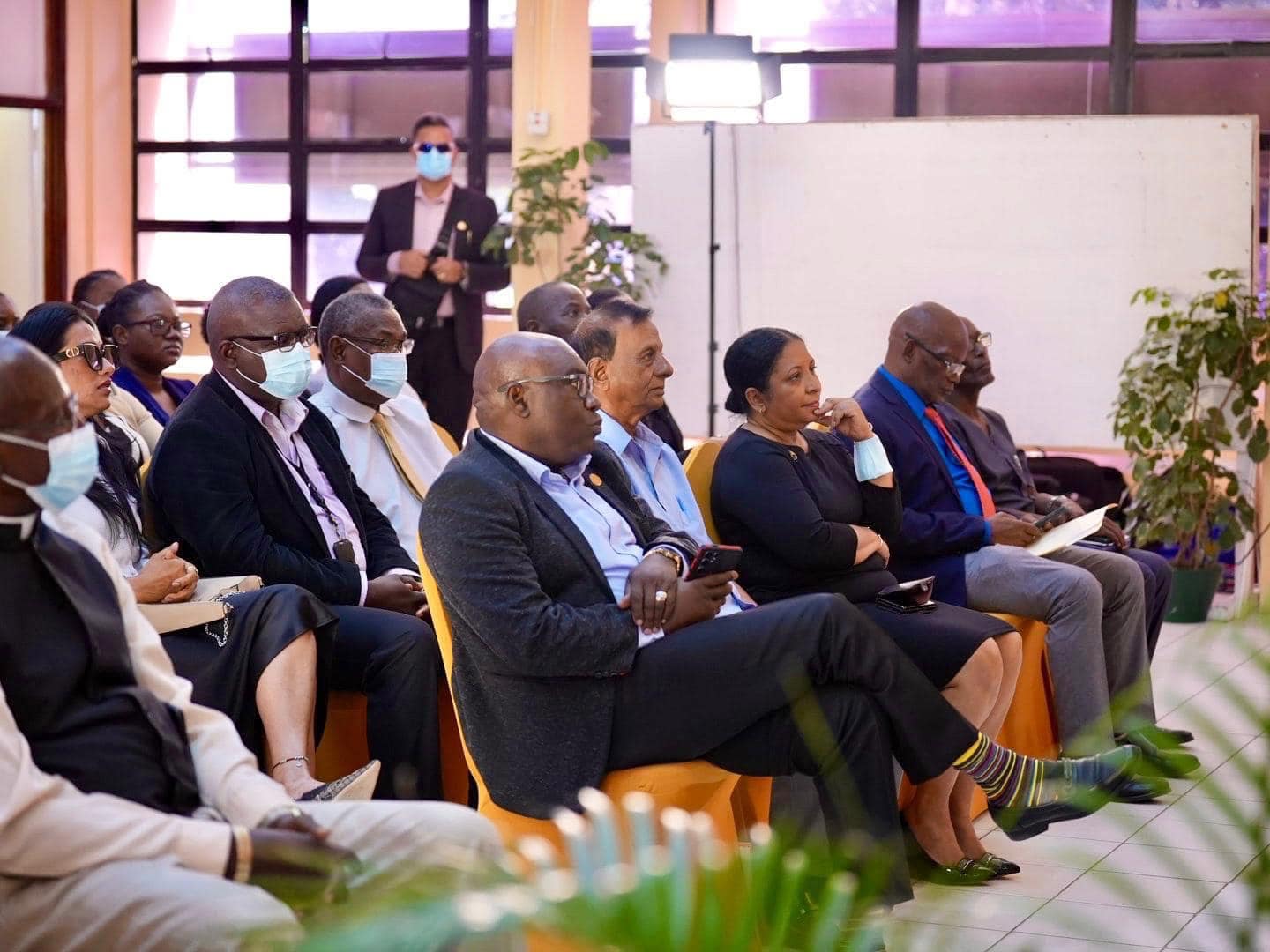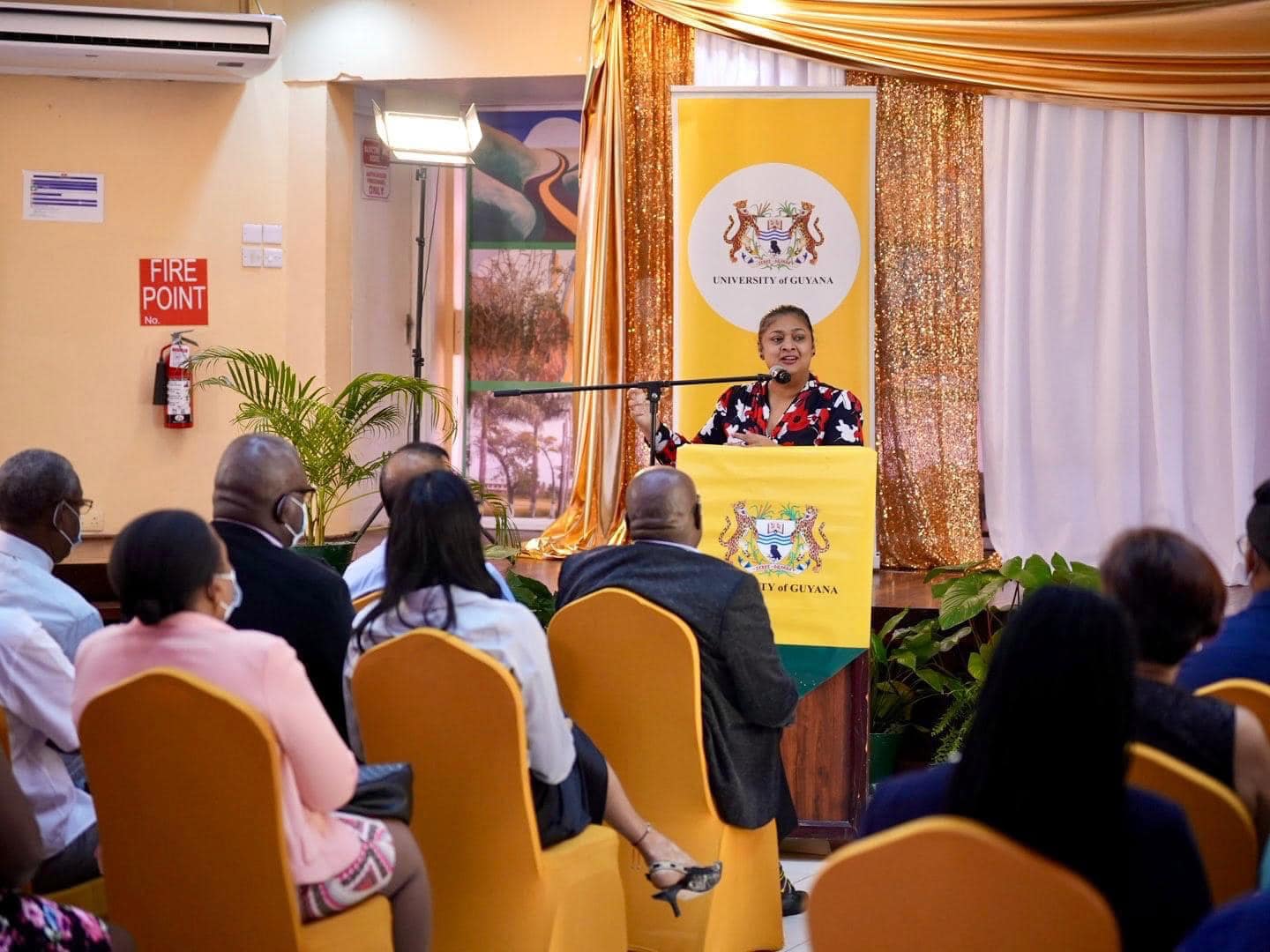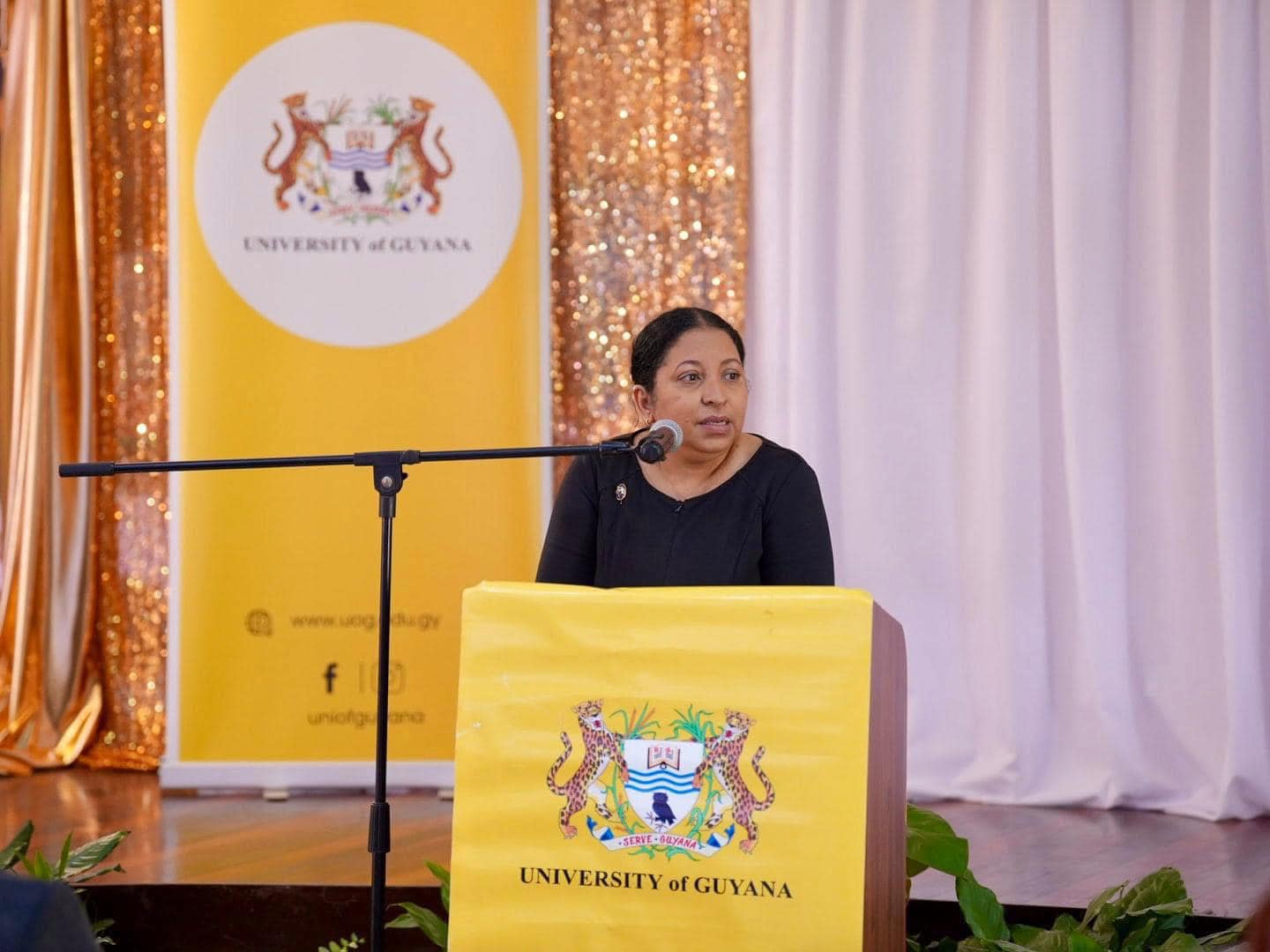
The University of Guyana, in a simple yet momentous internal ceremony, has attained universal institutional accreditation. While several programmes at the University have enjoyed programme accreditation for specific disciplines, this is the first time the University of Guyana has applied for and received universal institutional accreditation in its 62-year history.
Officiating at the ceremony were the Hon. Minister of Education, Dr Priya Manickchand; Chair of the National Accreditation Council (NAC), Dr Mohandat Goolsarran; CEO of the National Accreditation Council, Dr Marcel Hutson; Vice-Chancellor of the University of Guyana, Prof. Paloma Mohamed Martin; Deputy Vice-Chancellor, Prof Emanuel Cummings and Reverend Noel Holder, as well as student representative, Charldon Greaves. The proceedings were expertly chaired by Mr Jainarine Deonauth, Director of Events, Conferences and Communications.

Dr Marcel Hutson, in his remarks, outlined that a team of five highly credentialled international non-Guyanese evaluators spent two weeks in Guyana visiting the University’s various campuses, verifying documentation, and speaking to a wide variety of stakeholders and officials in November 2024. The team of international accreditors awarded the University of Guyana 97% of the total score for meeting or excelling in 16.5 of the 17 standards. These include Governance and Administration (fully met), Teaching and Learning (met), Readiness for Change (met), Quality Enhancement (met), and Mission and Vision (partially met). The mission statement, last reviewed in the 1970s, must now be revised to fit the much wider scope of what the University currently delivers and is preparing to deliver in its forward-thinking “Blueprint 2025.” He congratulated the University but indicated that accreditation is a process, not a destination, and that this accreditation is valid for the next five years, after which the process will begin again.
Prof. Emanuel Cummings, Deputy Vice-Chancellor for Academic Engagement, whose office is responsible for academic offerings and quality control aspects of academic delivery, leads the University’s accreditation documentation and preparation. He spoke about the long road and extensive self-study work that went into this first accreditation, starting from the preparation and attainment of the first registration in 2021, which is a precursor to accreditation. He outlined that the process focuses on the reporting, analysis, and assessment of all aspects of the University’s operations on all its campuses and every one of its approximately 170 odd course offerings. He recounted other programme accreditations the University successfully attained in 2024 and earlier, and how those experiences supported this much larger endeavour.

Dr Cummings indicated that the greatest benefit of accreditation is to the students, delivering:
- Enhanced Reputation and Credibility: Accreditation acts as a seal of approval, signalling to students, faculty, and the public that the institution meets recognised standards of quality. This enhances the University’s reputation and builds trust in its programmes and degrees.
- Attracting and Retaining Students: Accreditation can make a university more attractive to prospective students, who often see it as an indicator of quality and value. This can lead to increased enrolment and improved student retention rates.
- Access to Funding and Resources: Accreditation is often a prerequisite for universities to receive federal and state funding, as well as grants and other financial aid. It can also open doors to partnerships and collaborations with other institutions and organisations.
- Improved Faculty Quality: Accredited institutions are more likely to attract and retain highly qualified faculty members who are drawn to the University’s commitment to excellence and its supportive environment for teaching and research.
Increased Student Employability: Graduates of accredited institutions are often viewed more favourably by employers, who recognise the value of a degree from a reputable and quality-assured university. This can lead to improved job prospects and career opportunities for students
- Global Recognition and Mobility: Accreditation can enhance the global recognition of a university and its degrees, making it easier for students to transfer credits or pursue further studies internationally.
- Continuous Improvement: The accreditation process encourages universities to engage in ongoing self-evaluation and improvement, ensuring that they are consistently meeting high standards and adapting to evolving educational needs and best practices.
Hon. Minister of Education, Dr Priya Manickchand, gave a stirring reminder of the humble beginnings of the University of Guyana, often mocked in its early days as “Jagan’s night school.” She noted that it has grown by leaps and bounds and is responsible for producing most of the country’s parliamentarians, members of the judiciary, medical doctors, and others. She stated that one cannot wait for perfection, but the process of perfecting must begin when and where it can, always with an eye on quality funding and value for money. She reiterated that value for money must be a critical factor in any endeavour, and UG is no different. Minister Manickchand said that the attainment of this accreditation is a good measure of value for money and congratulated the University and the National Accreditation Council on this seminal achievement.

UG’s 11th Vice-Chancellor, Prof Paloma Mohamed Martin, accepted the certificate on behalf of the University and thanked all those who led and contributed to the achievement—from past Vice-Chancellors to Chancellors and past Council Members, as well as the Government of Guyana and donors and partners who provided gap funding for the University over the years. She indicated that the University has risen in international rankings by over 3,000 places in the last four years due to the collaborative input of everyone. Prof. Mohamed Martin noted that quality and excellence are always the focus of the University, as a world-class country must have a world-class university, which UG is mandated to become. “UG has been punching way above its weight for decades in many areas. Though we always have things to improve,” Professor Mohamed Martin said. Holding the certificate close to her heart, a tearful Vice-Chancellor said, “This is so precious and so long in coming. It’s the beginning of more hard work and a different dispensation of UG, but I am honoured to be the first Vice-Chancellor to have been involved in this process and to accept this certification on behalf of our faculty and students, our alumni and partners, and our beloved country. Students, this is for you!”
Student representative, Charldon Greaves, speaking on behalf of the student body, rounded out the brief ceremony by expressing the delight, impact, and value the accreditation will bring to him and other present and future graduates. “Most of all,” he said, “for me, it’s a badge of honour. Just amazing.” (University of Guyana press release)







